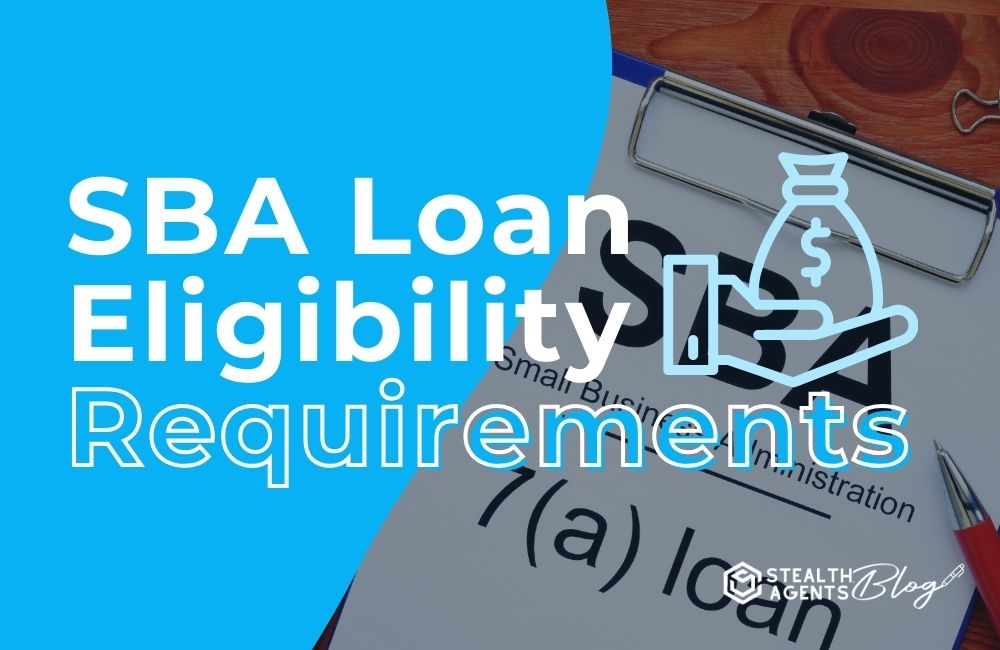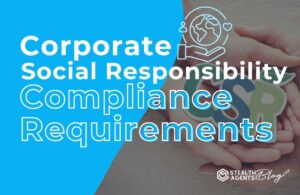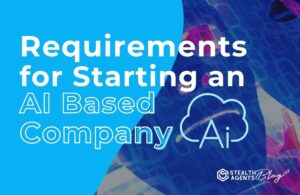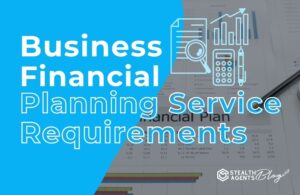SBA Loan Eligibility Requirements
Starting a business or wanting to scale one can feel like jumping into a pool without knowing if there’s water in it. That’s where the Small Business Administration (SBA) comes to the rescue, offering a financial life vest for your entrepreneurial dreams. SBA loans are a beacon of hope, providing accessible capital to companies when traditional financial institutions slam the door. In this deep-dive blog post, we help you decipher the sometimes murky waters surrounding SBA loan eligibility. Whether you’re a startup or a seasoned business owner, understanding these requirements can mean the difference between growth and stagnation.
What Exactly are SBA Loans?
The U.S. Small Business Administration doesn’t lend directly to small businesses but provides certain guarantees to approved lenders that back loans to small businesses. SBA loans are crafted to offer more favorable terms and lower interest rates than conventional loans, making them an attractive option for businesses seeking capital for a variety of purposes, like working capital, refinancing debt, and purchasing real estate or equipment.
Why the need for the SBA? Simply because they believe in you, the entrepreneur, despite the risks banks might shy away from taking. And it’s not just talk – it’s action too. The SBA has been the launchpad for many an American success story.
Eligibility Criteria: Are You Ready?
While SBA loans offer a financial leg-up to small businesses, they aren’t a free-for-all. Like all loans, eligibility hinges on certain criteria. Here’s a primer on the four major checkpoints:
Business Size
Your business must meet the size standards set by the SBA, which vary by industry. Usually, this is determined by the number of employees or average annual receipts. The SBA’s size standards tool can help you check if your business falls within the accepted range.
Credit History
Your personal and business credit history will be scrutinized. The SBA doesn’t state a minimum credit score, but a good-to-excellent score (around 680 or higher) boosts your chances. However, they may overlook past credit blemishes if presented with a robust case for your business’s future success.
Collateral and Personal Investments
Collateral isn’t always required, especially for smaller loans, but expect lenders to ask for it if you’re borrowing a substantial amount. Additionally, you may need to put up a personal investment of up to 10% for most SBA loans.
Ownership Details
The SBA can refuse a loan based on the character of the owners or certain types of business. They frown upon entities involved in speculation or investment in rental real estate.
What to Gather: SBA Loan Application 101
The mantra for smooth SBA loan processing is documentation. The more comprehensive, the better. Here are some must-have documents:
Business Plan
Your business plan is your sales pitch. It should include your business’s concept, financial projections, and other details that demonstrate your understanding of the market and competition.
Financials
Prepare a business financial statement outlining current financial position, a projected financial statement with your loan application, startup budget, and initial capital expenses. This shows the lender where your business is and where it’s headed.
*advertisement*
Tired & Overwhelmed With Administrative Tasks?
Hire A Top 1% Virtual Assistant From Stealth Agents!

Sign Up Below & Hire A Top 1% Virtual Assistant
Rated 4.7 Stars Serving Over 2,000+ Customers.
Hire Top 1% Virtual Assistants For $10-$15 Per Hour
Ask About Our 14 Day Trial!
*advertisement*
Tax Returns
Personal and business tax return for all principals should be provided to the lender. If there are any past tax liens, have an explanation ready.
Legal Documents
Commercial leases, franchise agreements, and articles of incorporation are examples of the legal documents that may be requested. All should be in order and up to date.
Navigating the Application Process
Applying for an SBA loan can be a labyrinth, but don’t lose heart. Here’s your map:
-
Pre-Application Preparation: Begin by reviewing the different types of SBA loans to see which best fits your needs.
-
Lender Selection: Choose an approved SBA lender or a Small Business Financial Development Company (FDC). They’ll guide you through the process.
-
Application Filing: Complete the appropriate SBA loan application (most commonly the SBA Form 7(a)).
-
Loan Processing: The lender will review and process your loan application. They may ask for additional documentation or clarification during this phase.
-
Loan Approval: Once the lender has approved the loan, they will submit it to the SBA for a guaranty.
-
Loan Funding: After the SBA gives its stamp of approval, it’s time to celebrate – your funding is on the way!
The Sweet Reward: SBA Loan Benefits
SBA loans offer a suite of benefits designed to help, not hinder, your business’s growth:
Favorable Terms
Enjoy lower down payments, lower monthly payments, and no balloon payments. Plus, competitive variable and fixed interest rates can be life-saving for businesses.
Longer Repayment Periods
SBA loans offer longer terms than conventional loans, especially for real estate and equipment purchases. This reduces the monthly burden on your cash flow, leaving you with breathing room to expand strategically.
Capital Access
For many small businesses, SBA loans are their only shot at securing large amounts of capital at affordable rates. It’s capital that can transform your business vision into tangible reality.
In Closing: Is an SBA Loan Right for You?
SBA loans are more than a financial leg up. They’re a nod from the Federal Government, saying they believe in the agility, drive, and innovation that small businesses like yours bring to the economy.
But eligibility can be a long road, and the application process demands precision and patience. Still, with the right mix of determination, documentation, and guidance, SBA loans can be a catalytic force for your business.
The next step is in your hands. Will you explore this avenue of financial assistance, or leave it untapped? The choice is as much a part of your entrepreneurial story as the success you harvest from it. Go forth and make well-informed decisions, for your business, your future, and perhaps, a chapter in the larger narrative of American enterprise. Your SBA loan quest awaits.









